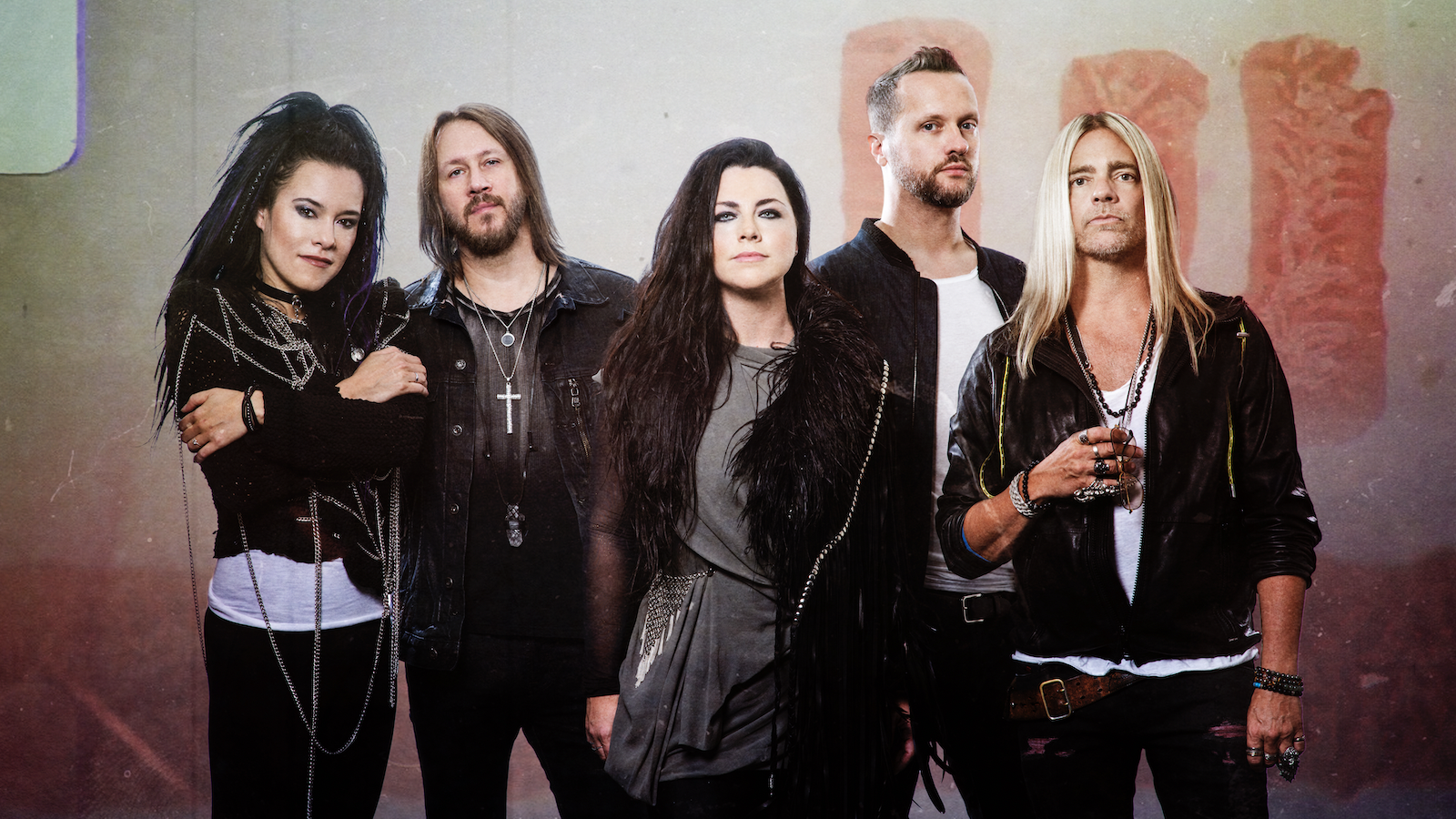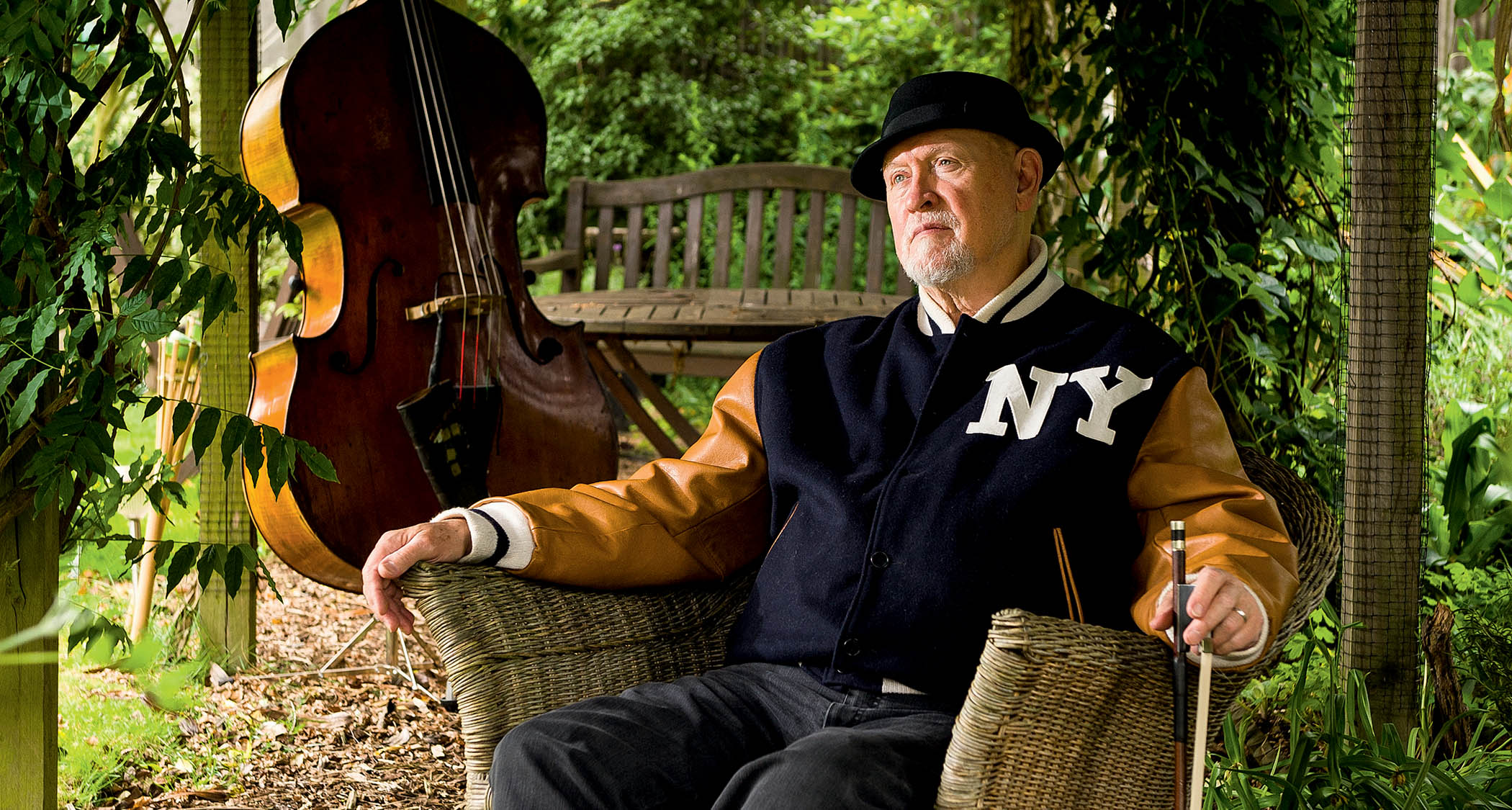Evanescence’s Jen Majura and Troy McLawhorn: “I think it’s a very beautiful, very meaningful, very REAL album”
To make their boldest album yet, Evanescence tapped into a world of internal ire

Additional note: Evanescence will be launching The Bitter Truth this Friday with a full-length documentary, Embracing The Bitter Truth, streaming exclusively on The Coda Collection. Click here for more info!
For their first record of entirely new material in a full decade, Evanescence have cranked the volume well past 11. As its title implies, The Bitter Truth is an absolutely ferocious dose of the band’s signature goth-rock grandeur. It’s dark, stormy and authentically impassioned, condensing not only ten years of pent-up musical ire, but the genuine frustrations of the fivesome being forced to create it in less-than-ideal conditions – thanks, of course, to 2020’s whole “modern-day plague outbreak” situation.
The environment that fostered The Bitter Truth was shrouded in vexation – for starters, border closures meant guitarist Jen Majura was stuck in Germany while the band recorded in the US; meanwhile, constant setbacks to meeting dates and release plans meant the record endured a notably messy writing and recording process. But the end product stands as a testament to Evanescence’s resilience – between the mind-melting lyrics, next‑level production, and riffs that cut through the mix like a hot knife through butter, it’s easily some of the Arkansas crew’s best work yet.
As Majura gears up to finally reunite with her bandmates, she, alongside co-shredder Troy McLawhorn, sat down to vibe on the chaos that led them to The Bitter Truth.
How does it feel now that you’re finally in the home stretch with The Bitter Truth?
Jen: It feels incredible. The sound of these songs, and the meaning behind them, really mirrors what was going on in 2020. When we started writing the album, we didn’t even know the world ‘pandemic’. We met up at Nick’s [Raskulinecz, producer] studio in Nashville last February to record the first four songs, and when we all went to the airport to fly home, we were like, “Okay, goodbye, see you next month!” And then the next month never came.
That was the last time I saw Amy and the guys. But they were all able to meet up in the States, so they started writing again and sent me everything via email, and I would record some DI stuff and send it over to Nick. It was weird. I just miss Amy and the guys so much! When you spend so many years together, and then all of a sudden you’re disconnected because of something like a pandemic, it’s like, “…Woah.” So you can really hear the heaviness of 2020 in the songwriting, y’know? All the songs are very… They’re real. I think it’s a very beautiful, very meaningful, very real album.
All the latest guitar news, interviews, lessons, reviews, deals and more, direct to your inbox!
How did you want The Bitter Truth to build on what you’d established creatively with the first four Evanescence albums?
Troy: I was just excited to make another record. Even though I’d been with the band since 2007, our third album was the first one that I actually played on. And when we went in to do that record, we’d been apart for a really long time, so I still felt like a new member; I didn’t really have a lot of input on the songwriting. So now that I’d been in the band for almost 14 years, I was really excited to do this album. For starters, it was the first rock album – like, full-on electric album – that we’ve done since the self-titled one. But I was also excited because I felt comfortable enough to bring in ideas and share in the songwriting.
We were all gelling really closely in the studio, so there was a lot of excitement in that. I wasn’t thinking so far ahead as to how we were going to change our sound, or anything like that. I feel like a lot of things have already been done – it’s really hard to be super original these days, as far as riffs and things like that go. But the tone of the album, and the lyrical content, and the overall themes… I just wanted it to be heavy as shit, y’know? I was like, “Man, I can’t wait to play some really crazy stuff!” And Amy was totally onboard with that!
We head in a lot of different directions on this one, I think. I like that. I’ve always been a fan of bands that aren’t afraid to branch out. I hate when I see a band keep writing the same songs over and over again.
A title like The Bitter Truth is a pretty bold statement in itself. Was it cathartic for you to pour a lot of the heaviness and angst you were feeling into this record?
Jen: I think it turned out way heavier than we first expected. If you listen to the lyrics and you really pay attention to the core of all the songs, there’s a lot of pain and a lot of headiness. It’s very reflective of how we felt in 2020 – we were stuck in something we didn’t know anything about, and we still don’t know where the journey is going – and you can hear all of that in the songs. But for me personally, it’s one of the most beautiful ways an album can turn out.
It’s not like we’re complaining, going, “Oh my God, there’s a pandemic, everything is so bad, we’re all gonna die!” It’s more about the questioning, the insecurity, the uncertainty… And I don’t think that’s necessarily down to the fact we’re musicians, y’know? Everybody is feeling the same way right now. Nobody knows where this whole pandemic is going to throw us. It doesn’t matter if you’re rich, poor, black, white – every human being is in the same boat, and that is completely what I feel is reflected in the vibe of this album.
Do you see the guitar as a tool you can use to convey emotions of its own, independent from Amy’s lyrics?
Troy: Yeah, definitely. I never start with the lyrics when I’m writing a song – it always starts with the guitar, because that’s my main instrument. I wanted the guitars to be angry and heavy and… Y’know, big, dumb rock ’n’ roll guitars [laughs]. I was really excited about shredding on this album! When we did the touring cycle for Synthesis, it was a little tough on the band because we weren’t really playing our instruments. I was playing synthesiser guitars, and there was no heaviness in it for me in it. So y’know, I was excited to get back to what I’m used to doing, which is being in a rock band!
Jen: For me, the guitar is a lot more than a piece of wood with strings screwed into it – the guitar is a part of me, and I use it to translate my own feelings and emotions. And of course Amy is a fantastic lyric writer; we have this one song, “Better Without You”, and when I heard her sing that song for the first time, I just wailed; I cried like a baby, because she has such a great talent for putting emotions into words and creating these awesome lyrics that are so touching, and so emotional.

Ellie Robinson is an Australian writer, editor and dog enthusiast with a keen ear for pop-rock and a keen tongue for actual Pop Rocks. Her bylines include music rag staples like NME, BLUNT, Mixdown and, of course, Australian Guitar (where she also serves as Editor-at-Large), but also less expected fare like TV Soap and Snowboarding Australia. Her go-to guitar is a Fender Player Tele, which, controversially, she only picked up after she'd joined the team at Australian Guitar. Before then, Ellie was a keyboardist – thankfully, the AG crew helped her see the light…
